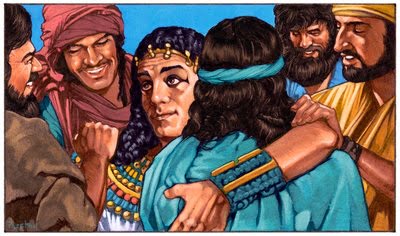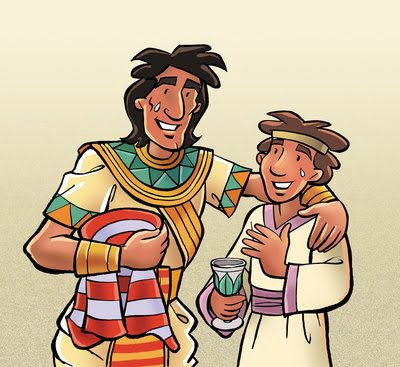Further Thought:
Ellen G. White, “Joseph in Egypt,” Pages 213-223; “Joseph and His Brothers,” Pages 224-232 in Patriarchs and Prophets.
“The three days of confinement were days of bitter sorrow with Jacob’s sons.
They reflected upon their past wrong course, especially their cruelty to Joseph. They knew if they were convicted of being spies, and they could not bring evidence to clear themselves, they would all have to die, or become slaves. They doubted whether any effort any one of them might make would cause their father to consent to have Benjamin go from him, after the cruel death, as he thought, Joseph had suffered. They sold Joseph as a slave, and they were fearful that God designed to punish them by suffering them to become slaves. Joseph considers that his father and the families of his brethren, may be suffering for food, and he is convinced that his brethren have repented of their cruel treatment of him, and that they would in no case treat Benjamin as they had treated him.” — Ellen G. White, Spiritual Gifts, book 3, Pages 155, 156.
“Joseph was satisfied. He had proved his brethren, and had seen in them the fruits of true repentance for their sins.” — Ellen G. White, Spiritual Gifts, book 3, p. 165.
Discussion Questions:
|
 (0)
(0)The post Friday: Further Thought ~ Joseph, Prince of Egypt appeared first on Sabbath School Net.
Source: https://ssnet.org/blog/friday-further-thought-joseph-prince-of-egypt/





